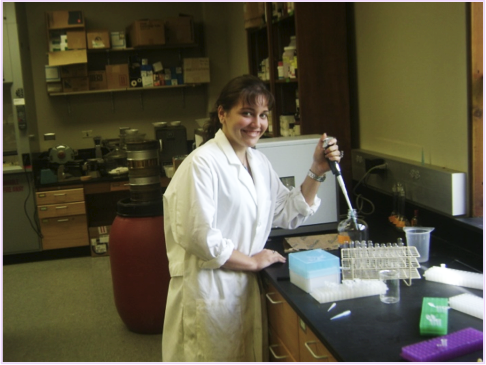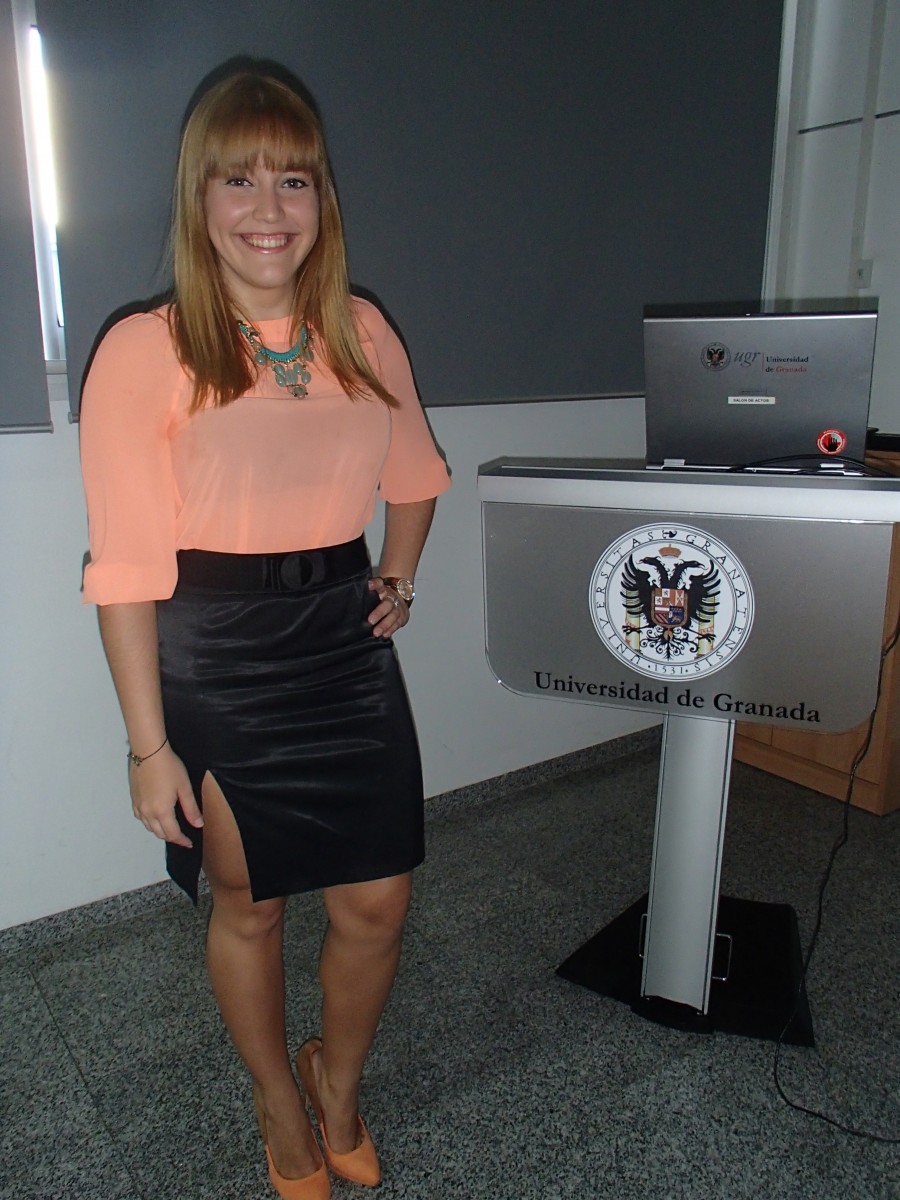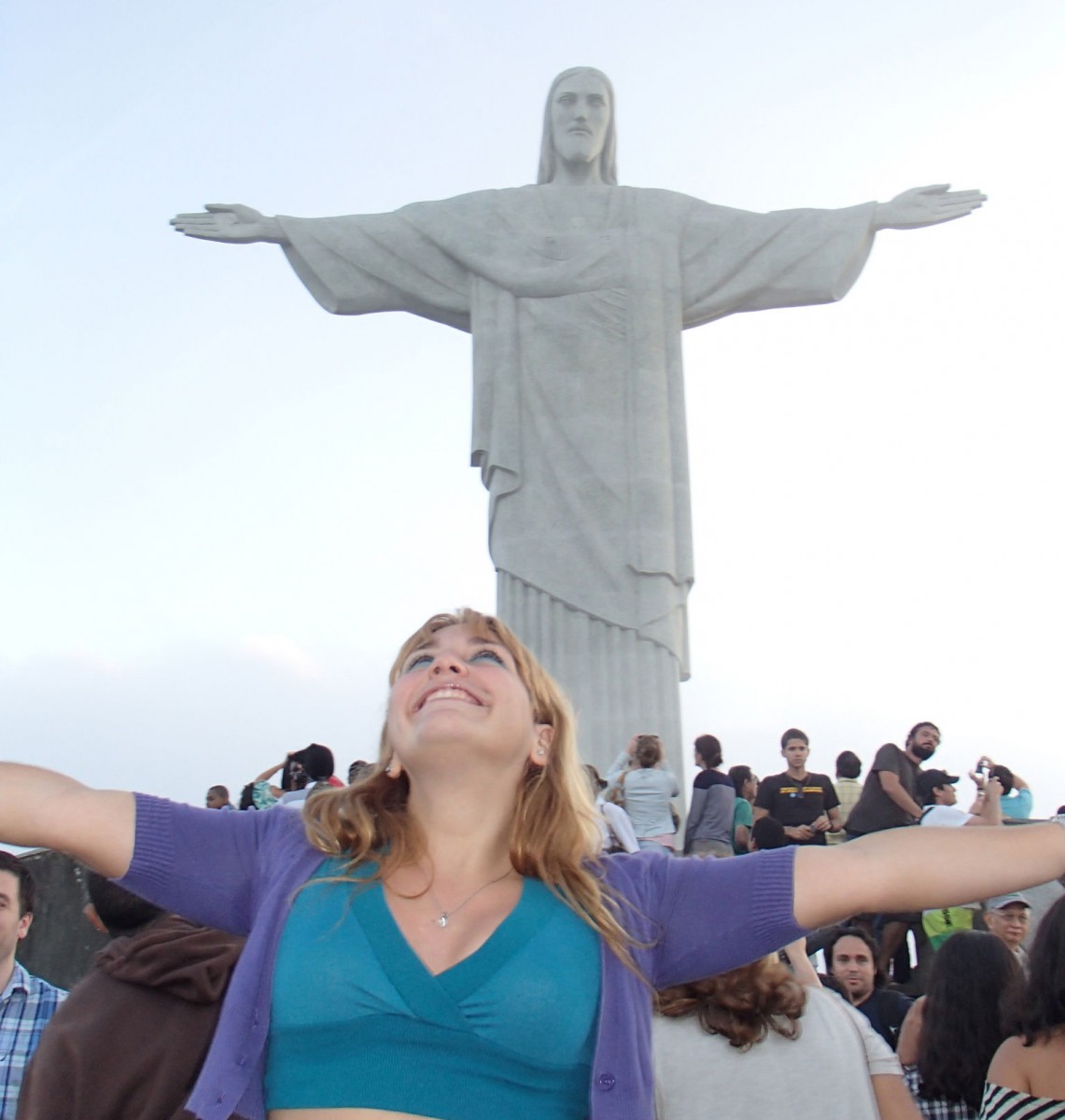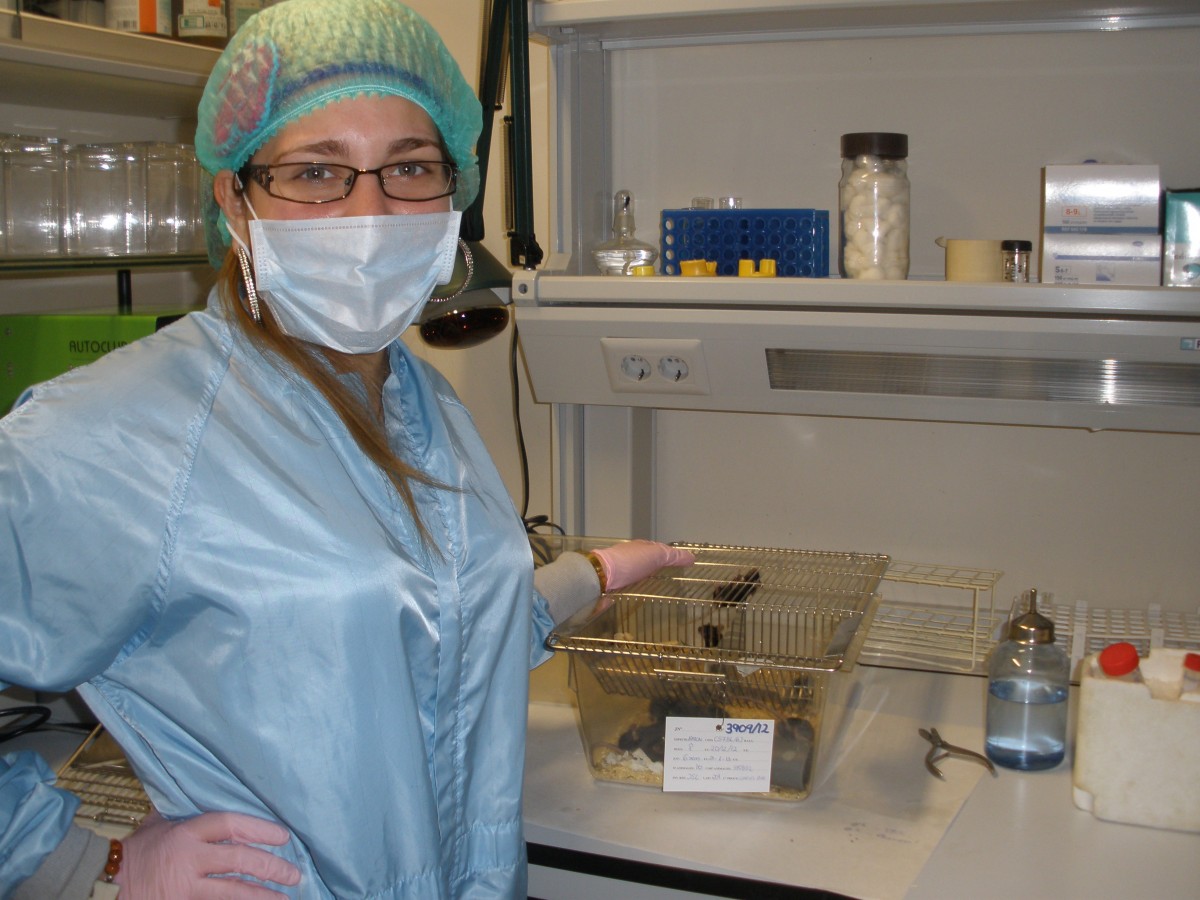Research and Mentoring: The International Experience of a Borinqueña
Submitted by Luz Milbeth Cumba Garcia on
Borinqueña emphasizes the contribution of Puerto Rican and Hispanic women in science and technology and provides a space to discuss topics of interest about the empowerment of women. In ‘What’s up Borinqueña?’ we share a variety of experiences and perspectives from different women and men that are committed to advancing equality for women in science.
Hi Borinqueñas! I'll start my story telling you that in 2008, I was admitted to the early admission program of the Universidad Metropolitana in San Juan, Puerto Rico, at 16 years old, to study a bachelors in Cellular and Molecular Biology. There, I got an Honors Scholarship and institutional Science Fellowship and had the opportunity to work in the laboratory of Dr. Eva Dávila, who specializes in botany.
From my early days as a college student, I had the opportunity to do summer internships abroad, conduct research in different laboratories in Puerto Rico and attend countless national and international conferences. These research experiences in science have led me to great adventures throughout different countries, enabling me to learn, not only the country's culture and science, but also how to do scientific research in each one of them.
Summer internships

In the summer of 2009, I did my first summer internship in the Department of Biochemistry of Kansas State University in Manhattan, Kansas. There, I studied the oxidative enzyme activity in the root system of the sunflower Helianthus annus L with Dr. Lawrence Davis. This research was conducted in order to see how the root system of these plants helps decontaminate effluent generated by industries.
However, it was in the summer of 2010 that I first had the opportunity to do research abroad in the Department of Immunology of the Institute of Parasitology and Biomedicine López Neyra at Granada, Spain. There, I investigated the response of T lymphocytes in a model of collagen-induced arthritis, with Dr. Jaime Sancho López. It was a great opportunity and I learned the importance of giving my best and leaving doors open, since it was in this institute where I went on to receive my Masters. As part of my thesis, I studied the inflammatory response in lupus induced by a compound called pristane.
Supervised by a Nobel prize winner

The summer of 2011 took me to the German Cancer Research Center in Heidelberg, Germany, where I had one of my dreams come true: to work with a Nobel Prize winner. Guided by the intellect of Dr. Harald zur Hausen (Nobel Prize in Physiology and Medicine in 2008), I studied the isolation of multiple genotypes of a virus from the umbilical cord. It was a wonderful experience that taught me to mature so much more, to believe in me, and to understand that with patience and perseverance EVERYTHING is possible.
My most recent internship experience was in Brazil, Rio de Janeiro, in the summer of 2012 at the "Universidade Federal do Estado do Rio de Janeiro". There I worked investigating the reliability of musculoskeletal protein α-actin as a marker of muscle damage in athletes, under the supervision of Dr. Luiz Claudio Cameron. Although it was a great experience, I can say that it was the most challenging, in part because of the challenges that countries like Brazil still face in research (e.g. limited resources, infrastructural and administrative barriers). Despite this, the experience helped me grow and learn even more about my abilities, weaknesses and facets that need more development. The strange thing is that I won an award after presenting this research for the first time, confirming that NOTHING is in vain and efforts are always rewarded.
Lessons learned of doing international research
No lectures, prizes, or mentoring fully prepares you for the great journey of traveling and studying abroad, so far from home. It is, indeed, the feeling of not knowing what will happen and the great pleasure of letting life surprise me what prompted and interested me to study and do research in Europe and in other countries.
The differences of doing research in another country are unimaginable because the methods are not the same, the way people work and do things varies, and even scientific standards sometimes differ. These differences transform your thinking and push you to your limits, forcing you to develop the tools to adapt to anything anywhere. They also let you experience the resilience and adaptability that human beings have.
There have been some challenges, from dealing with different personalities, to not know the technique that is being used in the laboratory at that time, not to mention the cultural components and language barriers. How do you deal with all of this? Only two words: PATIENCE and PERSISTENCE. When you really want something, obstacles become opportunities for personal and professional growth that push you to learn, mature, innovate and GROW. From the experiences and decisions made, I have no regrets because thanks to them I am who I am.

When I look back, I see that the road has been winding yet the achievements have been many. But I've learned that the most important thing is to maintain humility, not forget where you come from and where you are going, and not lose focus and balance. In a way, my journey through the sciences has allowed me to enjoy my other passions: traveling and meeting people. I do not think there's any better feeling than being able to combine your passions.
Something that fascinates me about my area of study is that through my work and scientific discoveries I can help people improve their quality of life. I think that increasing scientific knowledge and making it public is our way of showing empathy. I also think that my work allows my identity as a Puerto Rican to manifest: in the desire to live, to serve, to be hospitable, and in the joy with which we do our work.
I urge all “Borinqueñas” to seek out opportunities to do research in other countries. Your vision and perspective of the world changes, you find different challenges that take you out of your comfort zone, and the value for what you have at home also increases.
All these experiences, awards, opportunities, have taught me to keep persevering and continue dreaming, to value each blessing that I have and to have faith in myself. They have also shown me the importance of not loosing my essence because, in the end, it is my character, my parents, mentors and professors to whom I am thankful for the position that I have right know and for each one of my achievements. Like a famous song says: “walking gets so boring when you learn how to fly”. The results of your commitment, love and passion for your profession or work will get you to places you never imagined to reach. The sky is not the limit, because there are footprints on the moon and for those who believe, fight for it and work ceaselessly, opportunities will come from everywhere. Cheer up, get up, YOU CAN!

About the guest blogger: Luz Milbeth Cumba García, has just defended her master's thesis: "Leukocyte inflammatory response in a murine model of pristane - induced lupus in CD38 KO mice” at the University of Granada in Granada, Spain. If you would like to know more about Luz Milbeth, visit her profile at CienciaPR.









